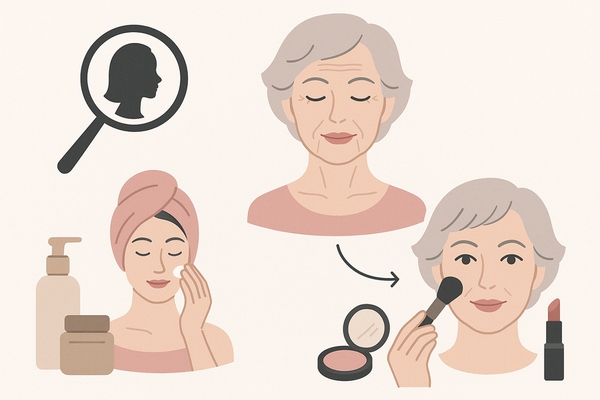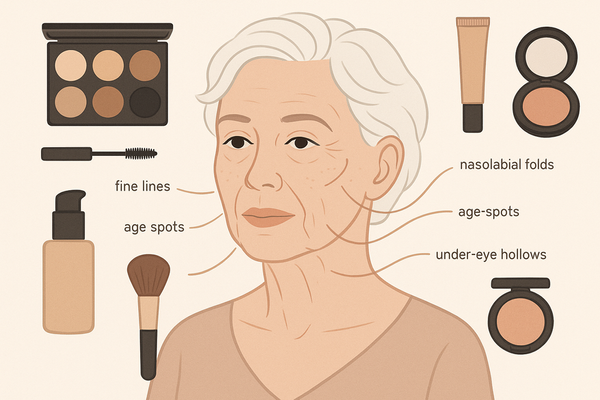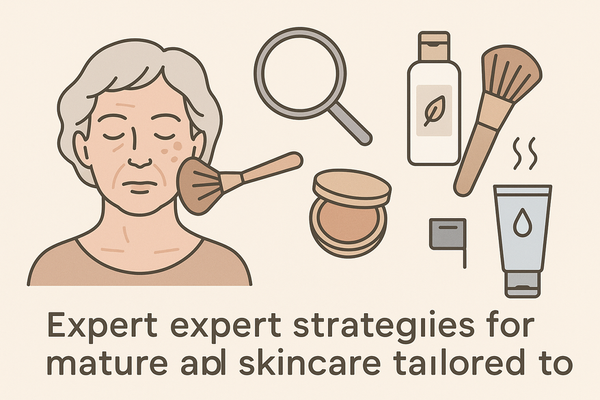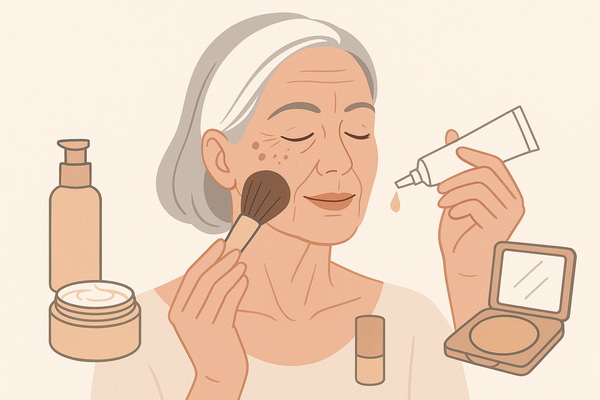Building Trust in Beauty Tech: Why Transparency and Ethics Matter
Explore how trust in beauty tech, transparency, and ethics influence consumer confidence and market success. Learn best practices for brands and tips for users.
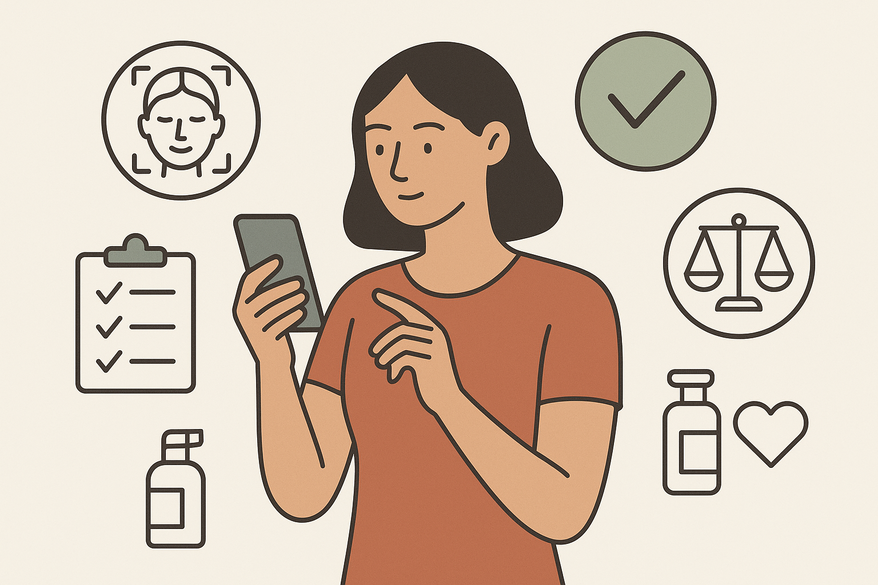
Estimated reading time: 8 minutes
Key Takeaways
- Trust is essential for consumer adoption of beauty tech.
- Transparency measures and ethical AI build consumer confidence.
- Brands can earn trust through clear communication, certifications, and social proof.
- Consumers should review privacy policies and certifications before using beauty tech.
- The future of beauty tech hinges on privacy, ethics, and regulatory compliance.
Table of Contents
- Section 1: Overview of Beauty Tech
- Section 2: The Importance of Trust in Beauty Tech
- Section 3: Building Trust in Emerging Beauty Tech
- Section 4: Best Practices for Beauty Tech Brands
- Section 5: Consumer Perspective
- Section 6: Future Outlook for Beauty Tech
- Conclusion
Section 1: Overview of Beauty Tech
Beauty tech combines advanced tools—like AI, AR, IoT, and data analytics—with skincare, cosmetics, and personal care. It brings digital innovation into daily routines.
Key Market Figures:
- 2024 market value: USD 68.87 billion
- Projected 2029 value: USD 130.93 billion
- CAGR: 13%–16%
Sources confirm via GCI Magazine article, Research and Markets report, and Grand View Research report.
Main Innovations Driving Growth:
- AI makeup coach insights
- virtual makeup try-on
- Wearable beauty devices & IoT-enabled skincare tools
- AI in ingredient discovery for safer formulations
These advances boost convenience and personalization—but they also introduce new data privacy and trust challenges.
Section 2: The Importance of Trust in Beauty Tech
Trust in beauty tech shapes consumer decisions. Tools often collect sensitive data—like high-resolution skin images, health metrics, and lifestyle habits—to provide automated recommendations.
Why Trust Matters:
- Consumer Decision-Making: Trust leads to higher satisfaction and loyalty.
- Data Sharing: Users share personal details more freely when they feel secure.
- Lower Abandonment: Clear, honest practices reduce drop-off rates.
Key Statistic: Up to 70% of consumers say trust is the top factor in purchase decisions (Source: GCI Magazine).
Brands investing in trust see better repeat usage and stronger customer relationships—a solid foundation for lasting brand loyalty.
Section 3: Building Trust in Emerging Beauty Tech
Implementing transparency and data privacy measures helps demystify beauty routines while protecting personal info.
Transparency Measures:
- Plain-Language Privacy Policies (simple summaries, visual icons for data types)
- Data Usage Disclosures (what’s collected, how it’s used, retention periods)
- User Consent Flows (explicit opt-in/out, easy withdrawal of consent)
Ethical AI Practices:
- Bias Mitigation (diverse data sets, regular fairness audits)
- Explainability (clear algorithm descriptions, user-friendly result explanations)
- Data Minimization (collect only what’s needed, delete data when no longer required)
Data Protection Standards & Certifications: GDPR, CCPA, ISO/IEC 27001.
Tools like Makeup Check AI embody these transparency principles in practice.
Section 4: Best Practices for Beauty Tech Brands
Building trust requires a strategic, multi-layered approach.
1. Transparent Communication
- Create “How It Works” pages with diagrams, infographics, and videos.
- Host live demos and webinars (real-time data flow walkthroughs, privacy Q&A).
2. Third-Party Validation
- Display certifications & badges (ISO 27001, CSA Privacy Seal, GDPR/CCPA).
- Publish independent lab tests & clinical trial reports.
3. Social Proof & Feedback Channels
- Show user testimonials & before-after galleries.
- Offer dedicated support for privacy questions.
- Maintain an active FAQ on data and security, updating regularly.
Actionable Insight: Publish monthly “Trust Updates” in a blog or newsletter and respond to feedback within 48 hours.
Case Study Example: A brand using on-device AR try-on (no cloud upload) saw a 30% increase in engagement and a 25% boost in repurchase rates.
Section 5: Consumer Perspective
Empower yourself with simple steps to evaluate and use beauty tech safely.
Tip 1: Evaluate Reviews & Testimonials – Look for balanced feedback and repeated privacy/security comments.
Tip 2: Verify Credentials & Certifications – Check for GDPR/CCPA mentions and ISO or third-party endorsements.
Tip 3: Review Privacy Policies – Understand what data is collected, why, how long it’s stored, and opt out of non-essential sharing.
Tip 4: Safeguard Personal Data – Use strong, unique passwords and enable two-factor authentication.
Addressing Common Misconceptions:
“All AI tools store my photos forever” – Many apps delete images after analysis or process them on-device.
“AR try-on ruins my device privacy” – Some tools run completely on your phone without cloud transfer.
Section 6: Future Outlook for Beauty Tech
As innovation accelerates, maintaining trust is paramount.
Upcoming Trends:
- AI-driven beauty advice (predictive skincare, custom formulation recommendations).
- Wearable sensors for real-time skin monitoring (pH, moisture, UV exposure).
- Advanced virtual beauty experiences in the metaverse (immersive VR/AR try-ons).
Anticipated Challenges:
- Global regulatory harmonization (GDPR, CCPA, new regional laws).
- Preventing AI misuse (deepfakes, biased suggestions).
- Securing biometric data (facial maps, skin metrics).
Brands must stay transparent, educate consumers, and evolve ethical standards alongside technology.
Conclusion
Trust in beauty tech underpins consumer adoption, brand loyalty, and market growth. As the industry advances, transparency, ethical frameworks, and user education will remain essential pillars.
Call to Action: Share your beauty tech experiences in the comments, ask questions about trust, or suggest best practices on social media. Let’s build a more transparent and trustworthy beauty tech landscape together.
FAQ
- Q: What is beauty tech?
A: A fusion of AI, AR, IoT, and data analytics with cosmetics that delivers personalized beauty solutions. - Q: Why is transparency important in beauty tech?
A: Transparency builds consumer trust by clarifying data usage, retention, and privacy practices. - Q: How can I verify a beauty tech brand’s trustworthiness?
A: Look for clear privacy policies, industry certifications, third-party audits, and user reviews. - Q: Are my photos safe with AI beauty apps?
A: Many apps delete images after analysis or process them on-device, but always check the privacy policy.

